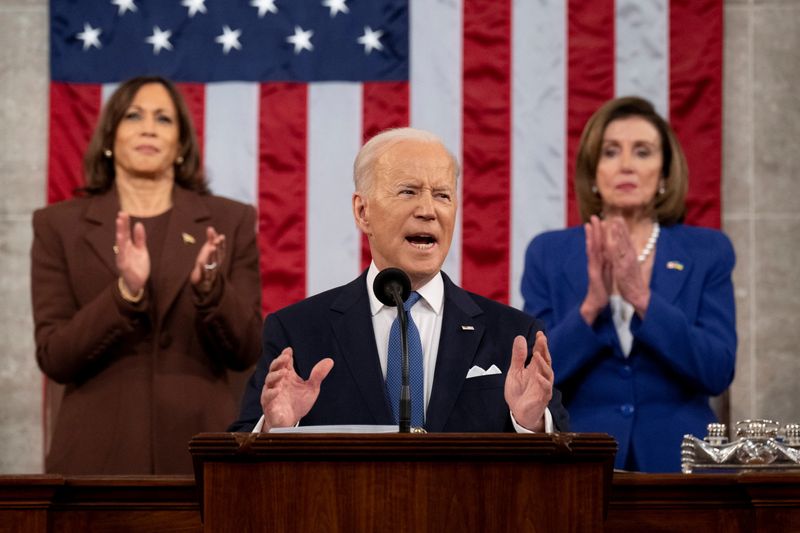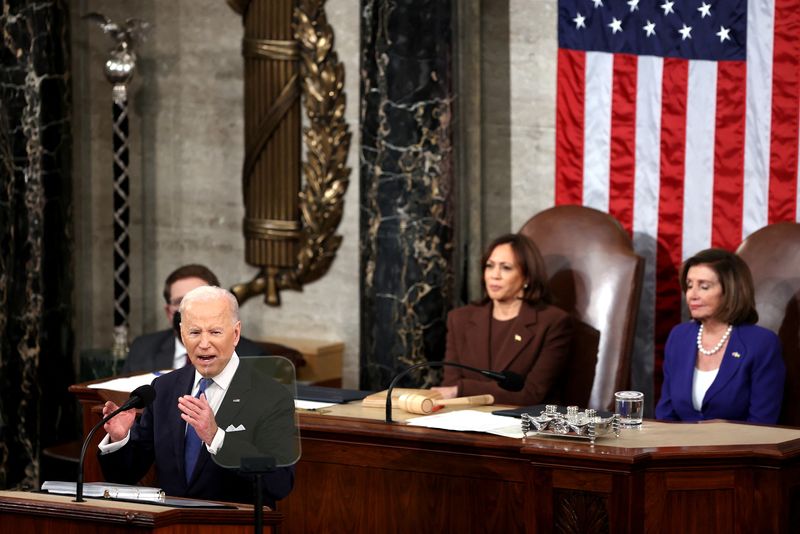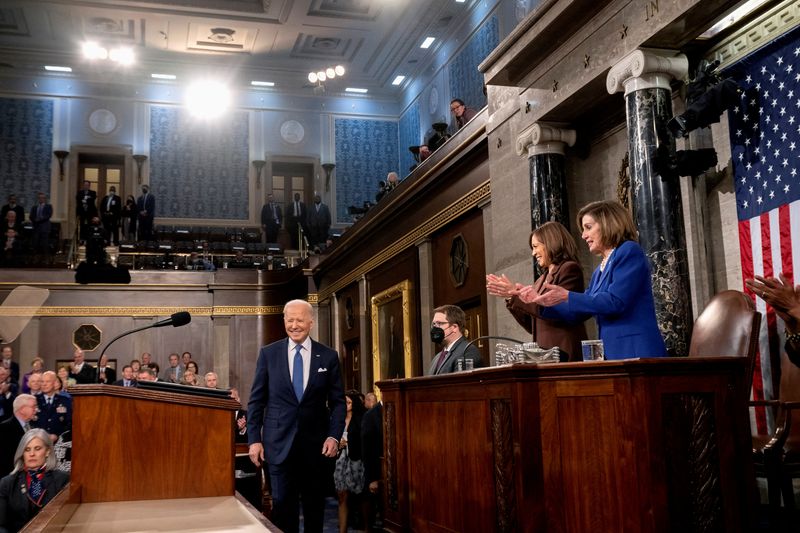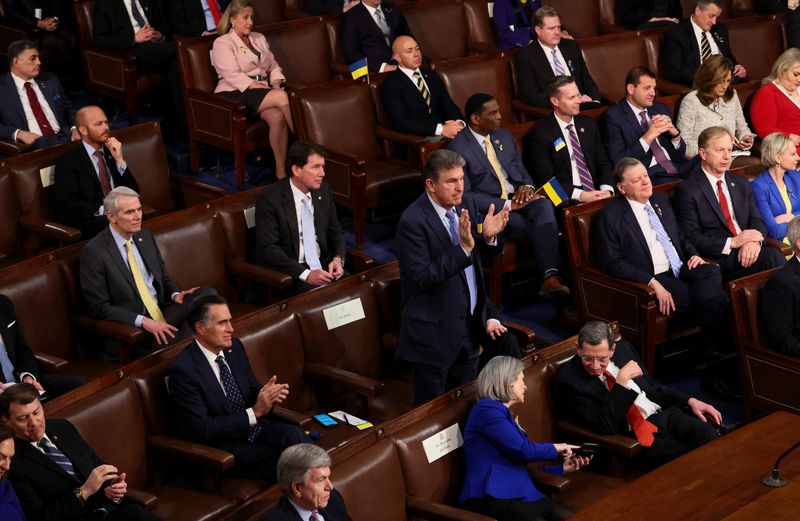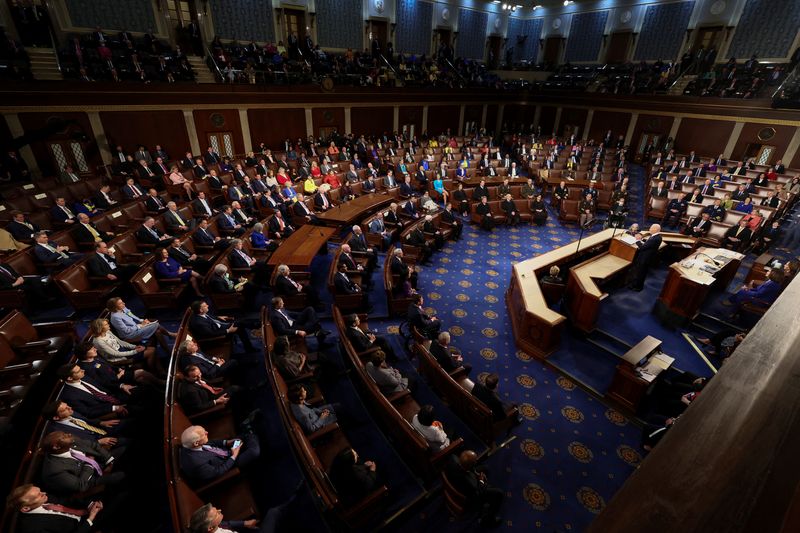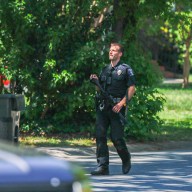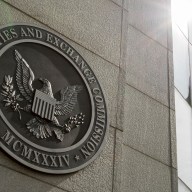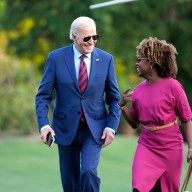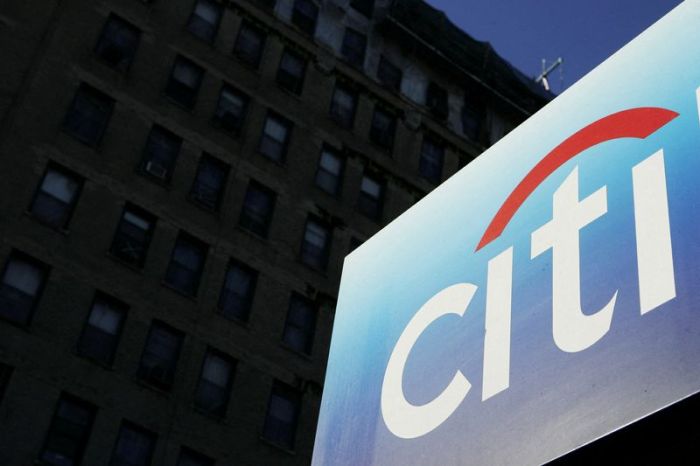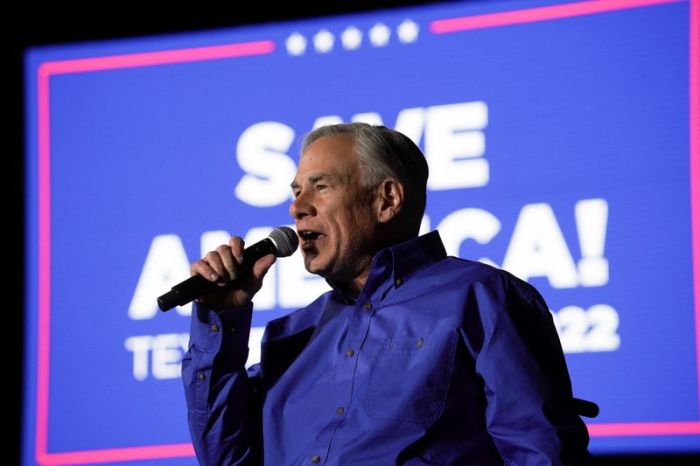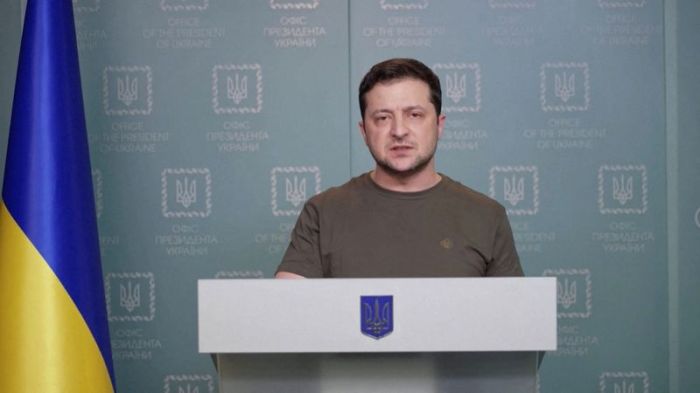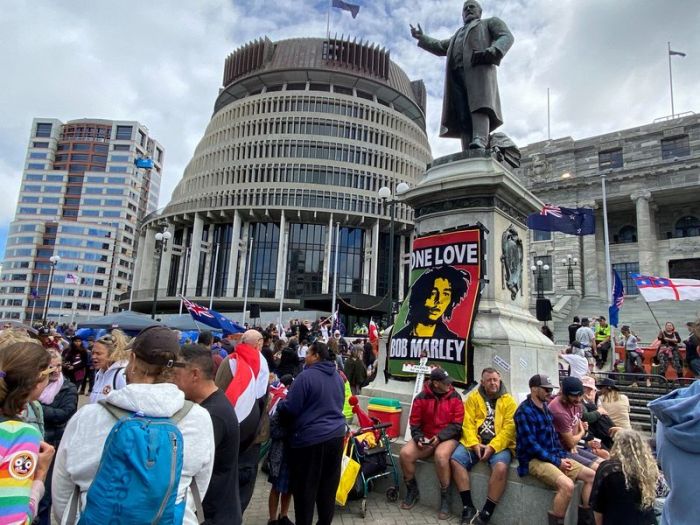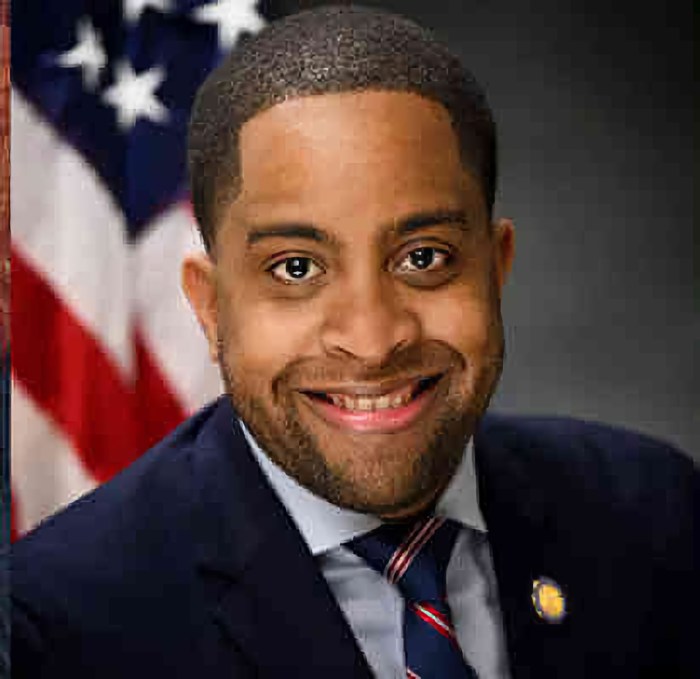WASHINGTON (Reuters) – U.S. President Joe Biden assailed Russian President Vladimir Putin, barred Russian flights from American airspace and led Democratic and Republican lawmakers in a rare display of unity on Tuesday in a State of the Union speech dominated by Russia’s invasion of Ukraine.
“Let each of us if you’re able to stand, stand and send an unmistakable signal to Ukraine and to the world,” Biden urged Democrats and Republicans
Lawmakers who are deeply divided over taxes, voting rights and gun safety stood together to applaud Ukraine, many waving Ukrainian flags and cheering in the chamber of the House of Representatives. Several women members of Congress wore the flag’s colors of yellow and blue.
In a deviation from his prepared remarks, Biden said of Putin: “He has no idea what’s coming.”
Biden was looking to reset his presidency after a first year in office marked by rapid economic growth and trillions of dollars in new programs, but beset by the highest inflation in 40 years and a lingering coronavirus pandemic.
The annual speech to Congress gave Biden a platform to highlight his agenda, reassure fretful Americans and seek to boost his sluggish poll numbers amid dire warnings his fellow Democrats could face losses in November congressional elections.
The ovation joined by both parties marked a return to tradition for Washington. Two years ago, House Speaker Nancy Pelosi was so disgusted with then-President Donald Trump’s claims to be protecting healthcare insurance in his speech that she ripped her copy into pieces behind his back.
“The State of the Union is strong — because you, the American people, are strong,” Biden said. “We are stronger today than we were a year ago.”
For the first time in months, members of Congress were not required to wear masks in the chambers to guard against the pandemic, a sight that could provide helpful optics for the president.
A CNN snap poll of speech watchers showed 41% reacting very positively, 29% somewhat positively and 29% negatively.
Russia’s invasion of Ukraine has tested Biden’s ability to respond rapidly to events without sending American forces into battle, and lead the West’s response to the most tense period in relations with Russia since the Cold War ended 30 years ago.
The United States and its allies have launched withering sanctions against Russia’s economy and financial system, Putin himself and his inner circle of oligarchs. Biden announced the United States will join other nations in banning Russian flights from American airspace.
The crisis forced Biden, whose chaotic withdrawal from Afghanistan last year drew wide criticism, to reshape the speech to focus on uniting Americans around a global effort to punish Moscow and support Kyiv.
TAKING AIM AT PUTIN
He took aim at Putin, saying the Kremlin leader had badly miscalculated how events would unfold and that now “Russia’s economy is reeling and Putin alone is to blame.”
“He thought he could roll into Ukraine and the world would roll over. Instead he met a wall of strength he never imagined. He met the Ukrainian people,” he said. “From President Zelenskiy to every Ukrainian, their fearlessness, their courage, their determination, inspires the world.”
In a show of support for Ukraine, first lady Jill Biden had as her guest at the speech the Ukraine ambassador to the United States, Oksana Markarova, who traveled in the Biden motorcade from the White House to Capitol Hill.
Biden is battling rising inflation exacerbated by the Russian crisis and has been assailed by Republicans who accused him of allowing it to get out of control. He called for companies to make more cars and semiconductors in the United States so Americans would be less reliant on imports.
The evening was not without its partisan moments. Two far-right Republican lawmakers, Lauren Boebert and Marjorie Taylor Greene, shouted “build the wall” to show their displeasure with Biden’s immigration policy. “Sit down,” shouted a Democratic lawmaker in response.
Biden himself offered some criticism of progressive policies in his party critical of police killings of Black men, saying: “The answer is not to defund the police. It’s to fund the police. Fund them. Fund them. Fund them with resources and training…to protect the community.”
Meanwhile, Joe Manchin, the West Virginia Democrat responsible for blocking Biden’s Build Back Better spending plan, spent the entire speech seated with Republicans on their side of the chamber.
Biden had some progress to tout: The economy grew faster than it has since 1984 with 6.6 million jobs created, the government distributed hundreds of millions of COVID-19 vaccines, and he has nominated the first Black woman to serve on the Supreme Court, Ketanji Brown Jackson.
Biden and his fellow Democrats face the prospect of losing control of the U.S. House of Representatives and Senate in Nov. 8 midterm elections. An uptick in Biden’s approval ratings might help prevent that and strengthen his chances of making good on his agenda.
Americans’ approval of Biden’s response to the Russian invasion rose over the past week, with 43% saying they approve in a Reuters/Ipsos poll completed on Tuesday, up from 34% last week. Some 47% disapproved of Biden response’s to the crisis, however, and his overall popularity has held near the low point of his presidency in recent weeks.
Iowa Governor Kim Reynolds, in the Republican response to Biden’s speech knocked his handling of the Ukraine crisis and inflation.
“Weakness on the world stage has a cost and the president’s approach to foreign policy has consistently been too little, too late,” she said.
(Reporting by Steve Holland, Makini Brice and Andrea Shalal; Additional reporting by Jeff Mason, Trevor Hunnicutt, Jason Lange, James Oliphant, Alexandra Alper, Doina Chiacu, Nandita Bose and David Shephardson; Editing by Heather Timmons and Howard Goller)

